29 November 2016 - More than 73 000 people from Mosul and neighbouring areas in Iraq have been displaced as a result of the ongoing conflict since 17 October. The majority of those displaced are currently hosted in Ninewa governorate, where health services are overwhelmed.
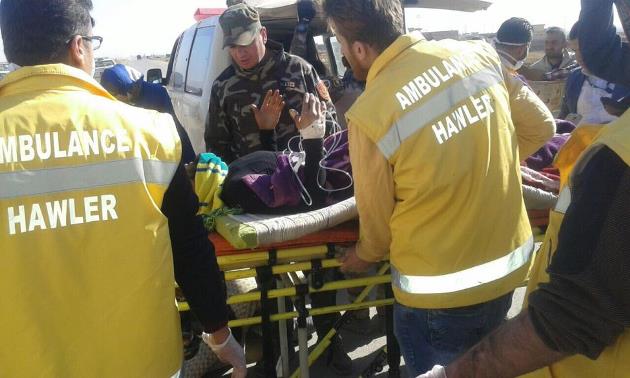
As the conflict in Mosul reaches more densely populated areas, the number of casualties requiring treatment for serious injuries is increasing. In the past 6 weeks, more than 1400 people have been hospitalized for trauma injuries.
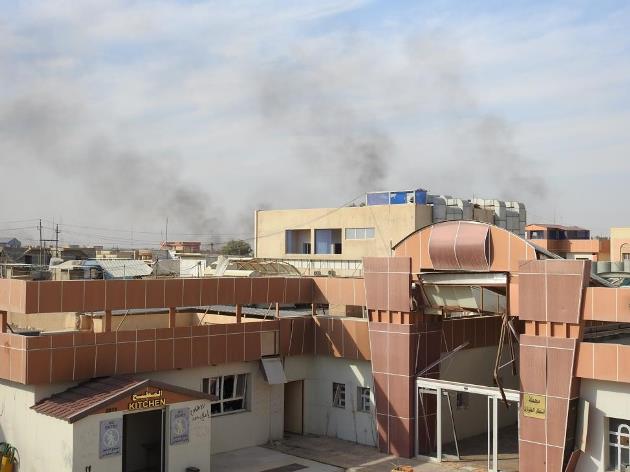
Hamdaneya hospital in eastern Mosul is the closest main referral hospital to Mosul city. The hospital is currently non-functional due to damages, lack of staff, equipment and medical supplies.
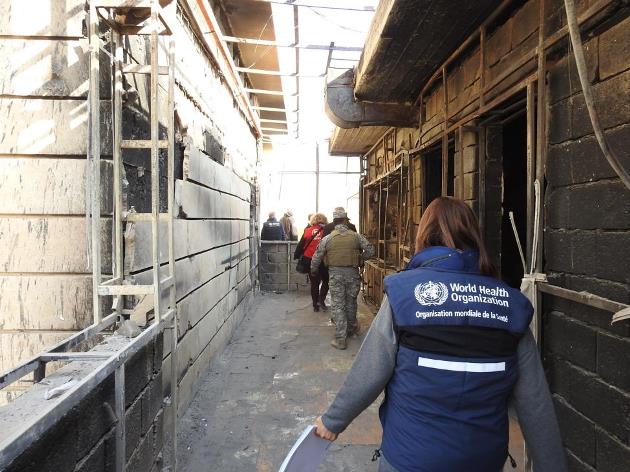
Local health authorities are in the process of doing minor rehabilitation to the hospital, and WHO is working with health partners to equip and operationalise the emergency units to receive trauma cases from Mosul.
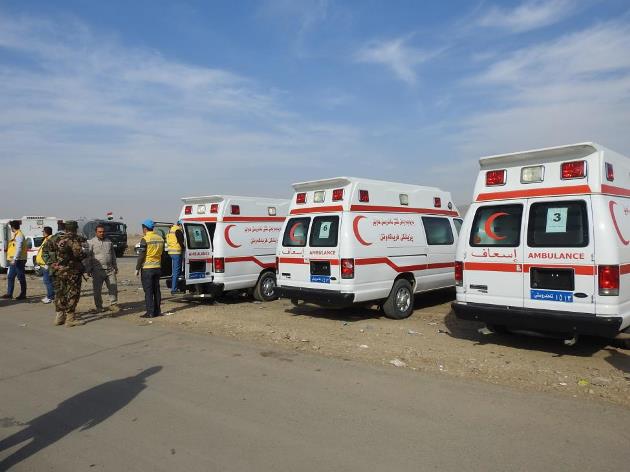
Currently, injured patients are transported by ambulance from eastern Mosul to Erbil, going through several checkpoints. The referral system is supported by WHO, who has provided more than 30 ambulances to local health authorities for Mosul response operations.
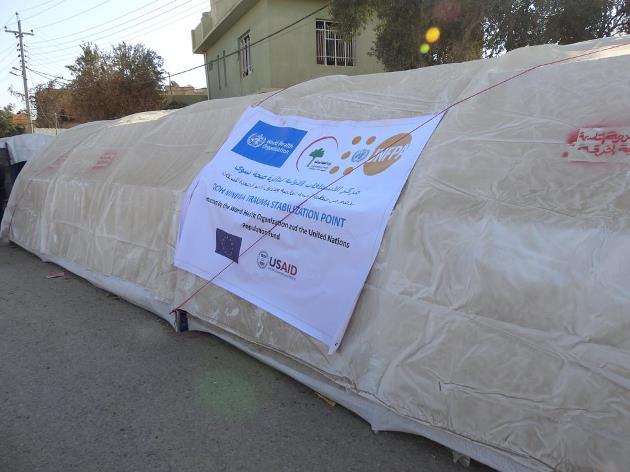
While trauma stabilization points have been established by WHO close to the front lines, the main goal is to ensure that critically injured patients are referred to hospital as quickly as possible.
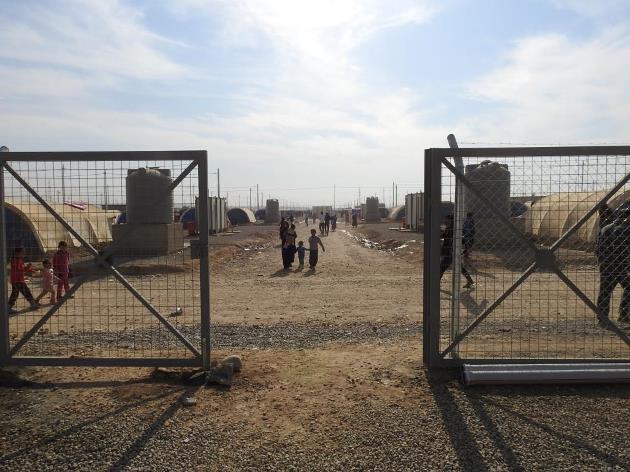
Khazir Camp in Ninewa governorate is located less than 10 minutes away from Hamdaneya Hospital. The camp hosts the largest number of people displaced by the Mosul crisis, with more than 30 000 people living in 6000 tents.
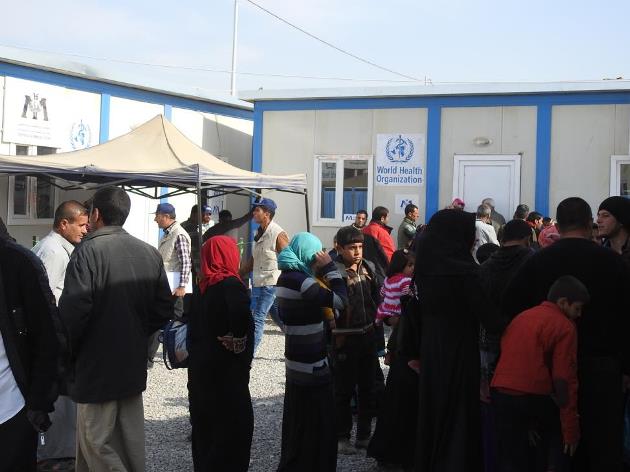
Health services in the camp are limited, and health workers are overwhelmed, reporting up to 400 consultations a day, including for minor injuries, respiratory conditions, and reproductive health.
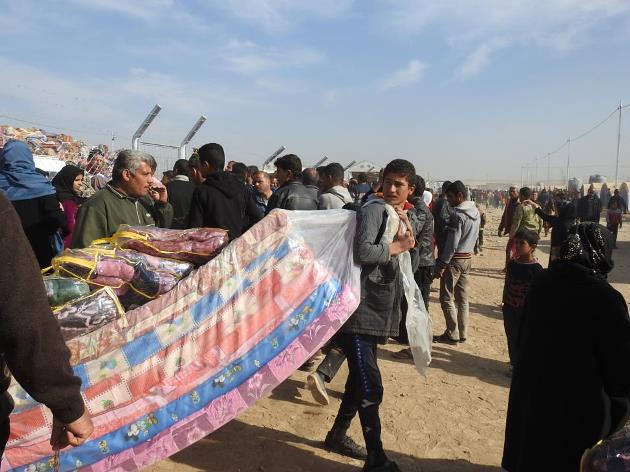
As temperatures drop to freezing at night, UN agencies, directorates of health and local charity foundations are preparing for winter by providing mattresses, blankets and heaters to families.
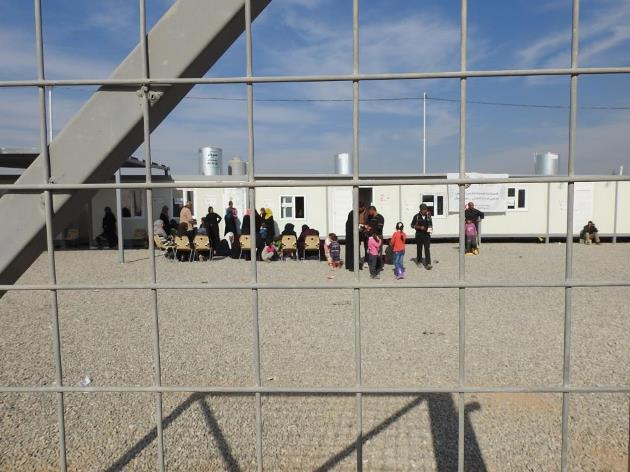
As displacement from Mosul continues to take place, the health needs of hundreds of thousands of people will significantly increase, overburdening an already overstretched health system, and leaving many men, women and children at risk. WHO and others on the ground continue to work to meet their needs, but international support is needed to ensure that health services are scaled up.
Support from WHO to Mosul response operations has been made possible by funding from the European Union (ECHO), the Office of U.S. Foreign Disaster Assistance (OFDA) and the Iraq Humanitarian Pooled Fund.
Related links
Civilians caught in the cross-fire: WHO supports trauma care services for people in and around Mosul
9 November 2016
Photos: WHO/Iraq


